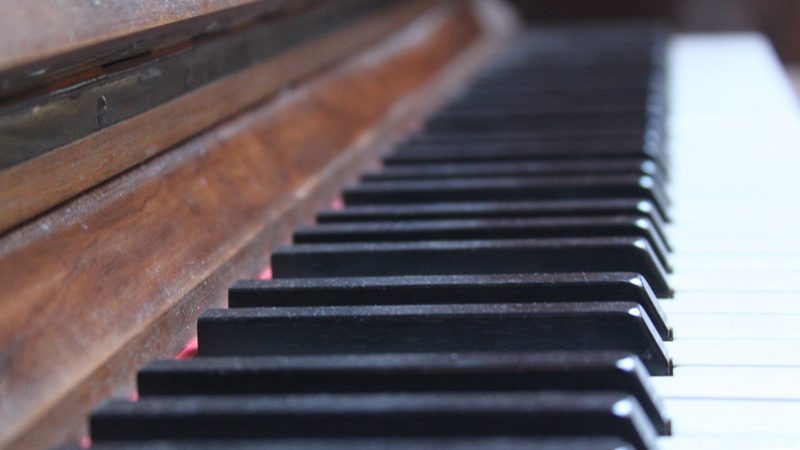A Wauwatosa-based supplier of music education resources is facing a sales slowdown as educators grapple with how to teach music during the COVID-19 pandemic.
When schools closed in the spring, Plank Road Publishing saw a significant decline in sales, according to owner Teresa Jennings. Although business has picked up again in more recent months, she says “it continues to be very hand-to-mouth.”
In a recent interview, she said the uncertainty surrounding this school year and whether students will be instructed in-person has been a drag on her company.
“Most of the music we produce is for classroom and performance purposes,” she told WisBusiness.com. “If there are no programs, concerts, performances or gatherings, the need for our resources is diminished.”
Plus, health experts have identified singing and playing certain instruments as risk factors for the spread of the virus. As for singing while wearing a mask — “it’s not exactly practical… nor is it even necessarily safe to try,” Jennings said.
Her experience is one of many Wisconsin business stories emerging from the pandemic, and a recent WisBusiness.com survey offered a way for those stories to be told. See more on the survey results in an earlier story below.
In a typical year, late summer signals the start of the busy season for Plank Road Publishing as school music programs begin purchasing and planning for fall and winter concerts. The business creates and publishes music resources for elementary and middle schools, with most customers being music teachers.
“The revenue from August to November is usually large enough to get us through lighter months. Not the case this year. At least not yet,” she said.
The company puts out a digital magazine with audio components called Music K-8, and publishes other resources including musicals, reviews, collections and instrumental recordings, such as recorder and ukulele pieces. Jennings hires professional musicians and young singers to record demos and accompaniment tracks, incorporating styles including contemporary, classical, jazz, rock and folk.
These products are digitally available, but if young students aren’t able to gather together to sing and play music, that represents a serious concern for Jennings’ company. While some schools are currently attempting to open with various measures in place to slow the spread of the virus, others are going completely online. In Jennings’ view, it’s a “really tough” issue with no easy solution.
“There is no way a remote education is as good as one in person,” she said. “But the risks are very high, not just for those at the schools, but also to anyone they come in contact with at home or outside the school.”
She argues the current situation would be improved by some sort of national mandate or “even just consistent national guidance” on how schools should approach the fall semester. She says more funding for school safety precautions would also be helpful.
“Right now, it feels like everyone is supposed to figure it out for themselves, and that’s very frustrating,” she said. “Unfortunately, no matter what we do collectively or individually, the results will be uneven and many kids will suffer — either from the lack of an in-person education, or physically if they become ill, and certainly emotionally and psychologically.”
Amid the ongoing pandemic, Jennings says she’s trying to reach customers in new ways, including expanding digital offerings and adding more academic resources that can be used remotely. Still, she says that’s been difficult because she doesn’t know which schools are currently open, or whether they will stay open moving forward.
On top of that, she notes there’s no certainty that school districts will have funding available for music education given their tenuous financial situations.
Her business sells products digitally, so there’s no direct customer contact. But for employees, Jennings said masks are mandated on the premises, and she’s taken other safety measures such as social distancing, hand-washing and regular sanitizing.
Plank Road Publishing has benefitted from the federal Paycheck Protection Program loan, which Jennings says helped her avoid laying off employees for several months. But she says it didn’t last long enough, and the company has been struggling since then. She employs about 40 workers, though some are part-time and seasonal. She hasn’t had to furlough or lay off any employees, though she said some have left on their own.
Jennings also received an Economic Injury Disaster Loan, though she said that came with “a lot of red tape and confusion” on the part of the U.S. Small Business Administration. She explained she hasn’t used any of these funds yet, “as we do not wish to incur debt we can’t repay should things go badly. It’s just too uncertain right now.”
Over the past 30 years, Jennings’ business has reached millions of children with its various music products, and she’s certain it’s had a positive impact. She argues that musical instruction is a critical piece of every child’s education.
“As advocates for the industry, we are hoping that schools are able to continue to fund their music education programs somehow,” she said. “Especially now, when kids are struggling with the pandemic, music is one piece of certainty we should try to provide for them if we can.”
See earlier stories on other survey respondents:
Take the survey here: http://docs.google.com/forms/d/e/1FAIpQLSd7QAcMm36CEUynO6Nm6Ie6TQY3b3_W3sHuwn9JrJi0uWnizQ/viewform
-By Alex Moe
WisBusiness.com



